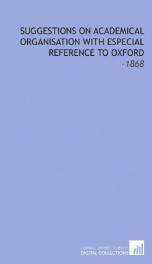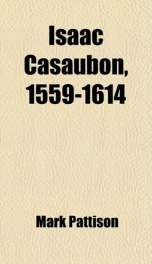sermons

Purchase of this book includes free trial access to www.million-books.com where you can read more than a million books for free. This is an OCR edition with typos. Excerpt from book: V. [April 30, 1865.] To aXrjBwov o tari£ti Trdvra iivOpwrrov e tis Tov Koo-/xov. " That was the true Light, which lighteth every man that cometh into the world."John i. 9. Two aspects of our education have occupied us on two former occasions,the intellectual and the moral,and we found that the quality which should distinguish the highest intellectual education from all the preparatory stages was that it should be philosophical, and that which should characterise the moral training in its highest form was that it should be ascetic. Our intellectual training should be a training not in philosophy, but to a philosophical spirit. Our intellectual aim here is not the acquisition of knowledge, but the attainment of a certain mental state. We learn, not to know this or that, but to know. In its moral aspect, oureducation here is what we have called ascetic, i.e. it is a discipline of character. It grasps at nothing less than the whole man; it seeks to mould him wholly not only in his thoughts but in his inclinations and his will. Resuming the subject at this point we see that one feature is common to both sides of such a training. Our intellectual and moral cultivation alike are developments from within ; they are not forms imposed from without. This constitutes a distinction between the lower stages of education, that education of which all men do or can partake, and the superior education which a university professes to administer. The lower or school education is a communication of one or more accomplishments rising in number and complexity according to the time and pains bestowed upon the pupil, from the simple accomplishments of reading and writing to be learnt in the village school to the Latin and Greek and mathematics of the grammar- school. In all this course,...
Info about the book
Author:
Series:
Unknown
ISBN:
1436560594
Rating:
3.5/5 (3)Your rating:
0/5
Languge:
English
Users who have this book
Users who want this book
What readers are saying
What do you think? Write your own comment on this book!
write a commentif you like sermons try:
Other books by this author
Do you want to exchange books? It’s EASY!
Get registered and find other users who want to give their favourite books to good hands!




